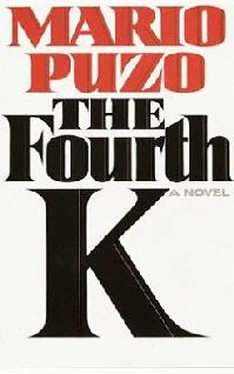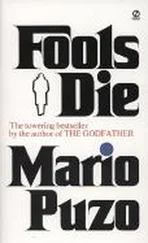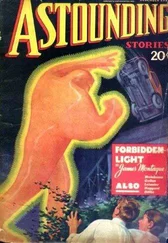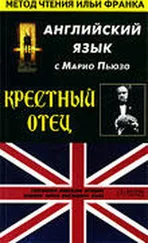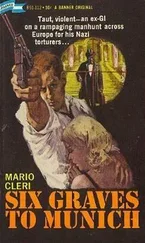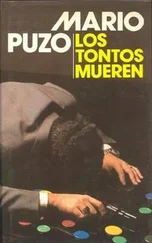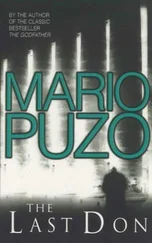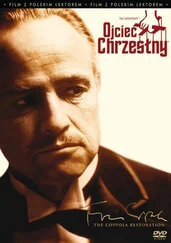Adam Gresse and Henry Tibbot had been classified as geniuses since they were twelve. Their parents had brought them up to be aware of their responsibilities to humankind. They had no vices except knowledge. Their particular brilliance made them disdain those appetites that were lice on the hide of humanity, such as alcohol, gambling, women, gluttony and drugs.
What they succumbed to was the powerful drug of clear thinking. They had a social conscience and saw the evil in the world. They knew that the making of atomic weapons was wrong, that the fate of humanity hung in the balance, and they decided to do what they could to avert an infernal disaster. So after a year of boyish talk they decided to scare the government. They would show how easy it was for a crazed individual to inflict grave punishment on mankind.
They built the tiny atom bomb, only half a kiloton in power, so that they could plant it and then warn the authorities of its existence. They thought of themselves and their contemplated deed as unique, as godlike.
They did not know that this precise situation had been predicted by the psychological reports of a prestigious think tank funded by the government as one of the possible hazards of the atomic age of mankind.
While they were still in New York, Adam Gresse and Henry Tibbot mailed their warning letter to The New York Times explaining their motives and asking that the letter be published before being sent to the authorities.
The composing of the letter had been a long process, not only because it had to be worded precisely to show no malicious intent but because they used scissored printed words and letters lifted out of old newspapers that they pasted onto blank sheets of paper.
The bomb would not go off till the following Thursday. By that time the letter would be in the hands of the authorities and the bomb surely found. It would he a warning to the rulers of the world.
And in Rome on that Good Friday, Theresa Catherine Kennedy, daughter of the President of the United States, prepared to end her self-imposed
European exile and return to live with her father in the White House.
Her Secret Service security detail had already made all the travel arrangements. Obeying her instructions, they had booked passage on the Easter Sunday flight from Rome to New York.
Theresa Kennedy was twenty-three years old and had been studying philosophy in Europe, first at the Sorbonne in Paris and then at the university in Rome, where she had just ended a serious affair with a radical Italian student, to their mutual relief
She loved her father but hated his being President because she was too loyal to publicly voice her own differing views. She had been a believer in socialism; now she was an advocate of the brotherhood of man, the sisterhood of women. She was a feminist in the American style; economic independence was the foundation of freedom, and so she had no guilt about the trust funds that guaranteed her freedom.
With a curious yet very human morality she had rejected the idea of any privilege and rarely visited her father in the White House. And perhaps she unconsciously blamed her father for her mother's death because he had struggled for political power while his wife was dying. Later she had wanted to lose herself in Europe, but by law she had to be protected by the Secret Service as a member of the immediate presidential family. She had tried to sign off on that security protection, but her father had begged her not to Francis Kennedy told her he could not bear it if something were to happen to her.
A detail of twenty men spread over three shifts a day, guarded Theresa
Kennedy. When she went to a restaurant, if she went to a movie with her boyfriend, they were there. They rented apartments in the same building, used a command van in the street. She was never alone. And she had to give her schedule to the chief of the security detail every single day.
Her guards were two-headed monsters: half servant, half master. With advanced electronic equipment they could hear the lovemaking when she brought a male friend back to her apartment. And they were frightening-they moved like wolves, gliding silently, their heads tilted alertly as if to catch a scent on the wind, but actually they were straining to listen to their earplug radios.
Theresa had refused a "net security," that is, security of the closest kind. She drove her own car, refused to let the security team take an adjoining apartment, refused to walk with guards alongside her. She had insisted that the security be a "perimeter security," that they erect a wall around her as if she were a large garden. In this way she could lead a personal life. This arrangement led to some embarrassing moments. One day she went shopping and needed change for a telephone call. She thought she had seen one of her security detail pretending to shop nearby. She had gone up to the man and said, "Could you give me a quarter?" He had looked at her with shocked bewilderment, and she realized that she had made a mistake, that he was not her security guard. She had burst out laughing and apologized. The man was amused and delighted as he gave her the quarter. "Anything for a Kennedy," he said jokingly.
Like so many of the young, Theresa Kennedy believed, on no particular evidence, that people were "good," as she believed herself to be good.
She marched for freedom, spoke out for the right and against the wrong.
She tried to never commit petty mean acts in everyday life. As a child she gave the contents of her piggy bank to the American Indians.
In her position as daughter of the President of the United States it was awkward for her when she spoke out for pro-choice abortion activists, and lent her name to radical and left-wing organizations. She endured the abuse of the media and the insults of political opponents.
Innocently, she was scrupulously fair in her love affairs; she believed in absolute frankness, she abhorred deceit.
In her years abroad there were incidents from which she should have learned some valuable lessons. In Paris a group of tramps living under one of the bridges tried to rape her when she roamed the city in search of local color. In Rome two beggars tried to snatch her purse as she was giving them money, and in both cases she had been rescued by her vigilant Secret Service detail. But this made no impression on her general faith that man was good. Every human being had the immortal seed of goodness in his soul, no one was beyond redemption. As a feminist she had, of course, learned of the tyranny of men over women, but did not really comprehend the brutal force men used when dealing with their own world. She had no sense of how one human being could betray another human being in the most false and cruel ways.
The chief of her security detail, a man too old to guard the more important people in government, was appalled by her innocence and tried to educate her. He told her horror stories about men in general, stories taken from his long experience in the service; he was more frank than he would ordinarily have been, since this job was his last assignment before retiring.
"You're too young to understand this world," he said. "And in your position you have to be very careful. You think because you do good for someone they will do good for you." Just the day before, she had picked up a, male hitchhiker, who assumed that this was a sexual invitation. The security chief had acted immediately; the two security cars forced
Theresa's car to the edge of the road just as the hitchhiker put his hand in Theresa's lap.
"Let me tell you a story," the chief said. "I once worked for the smartest and nicest man in the government service. In clandestine operations. Just once he got outsmarted, caught in a trap, and this bad guy had him at his mercy. Could just blow him away. And this guy was a real bad guy. But for some reason he let my boss off the hook and said, 'Remember, you owe me one.' Well, we spent six months tracking this guy down and we nailed him. And my boss blew him away, never gave him a chance to surrender or turn 'double.' And you know why? He told me himself This bad guy once had the power of God and therefore was too dangerous to be allowed to live. And my boss didn't have a feeling of gratitude, he said the guy's mercy was just a whim and you can't count on whims the next time around." The chief did not tell Theresa his boss had been a man named Christian Klee.
Читать дальше
